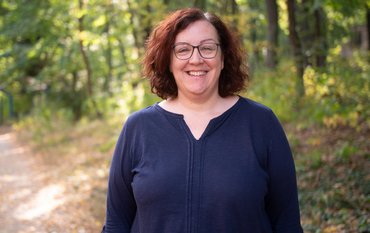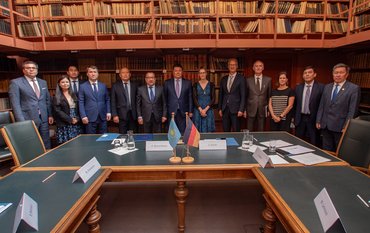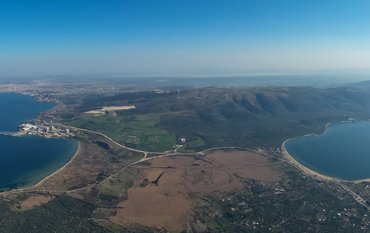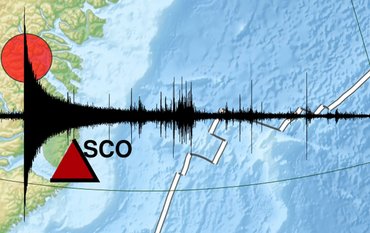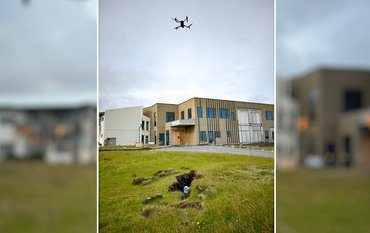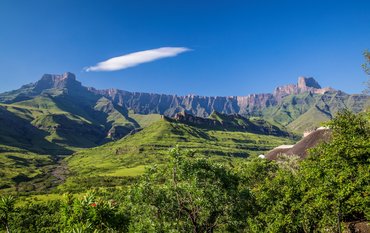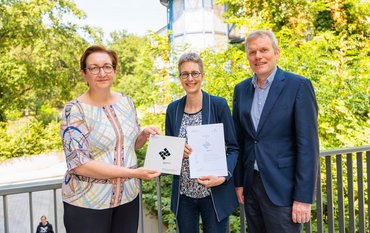Through the Humboldt Research Fellowship for Experienced Researchers, the Alexander von Humboldt Foundation sponsors researchers with above-average qualifications from across the globe – regardless of their field.
Over the next three years, Dr. Elizaveta Kovaleva will spend three extended periods with a total duration of 12 months in the GFZ, working in collaboration with the members of the Interface Geochemistry section. The research focuses on nano-structures and nano-textures observed in shocked minerals from various meteorite impact structures on Earth.
Elizaveta Kovaleva graduated from the Lomonosov Moscow State University, received her Ph.D. from the University of Vienna, and completed two postdoctoral fellowships at the University of the Free State, South Africa, before joining the University of the Western Cape, ZA, as a Lecturer.
Research in focus: effects of meteorite collisions
Meteorite collisions are the key geological process in the Solar System responsible for the accretion and evolution of planets and their moons, and the impact craters cover the surfaces of nearly all observed rocky and icy planetary bodies. In the past, impact events vastly affected the crust, atmosphere, biosphere, and hydrosphere of our home, the Earth. Collisions of the Earth with asteroids can – and, likely, will – also happen in the future. Thus, it is critical to fully understand the effects of such catastrophic events that occur in the geological record of our planet and estimate their physical and chemical parameters.
Kovaleva aims to develop pressure-temperature diagrams for deformed accessory minerals based on shock-related nano-structures, and improve the dating technique to facilitate age determination of impact craters. The main methods used in this study are scanning electron microscopy (SEM) used for conventional characterization of the samples, transmission electron microscopy (TEM) used for nano-scale observations, and secondary ion mass spectrometry (SIMS, NordSIMS facility at the Swedish Museum of Natural History, Stockholm) used for isotopic dating. Among others, the impact craters to be investigated are Vredefort (South Africa), Sudbury (Canada), Ries (Germany), along with the material from the Moon and enigmatic Lybian Desert Glass.
Scientific contact:
Dr. Elizaveta Kovaleva
Section Interface Geochemistry
Helmholtz Centre Potsdam
GFZ German Research Centre for Geosciences
Telegrafenberg
14473 Potsdam
Email: elizaveta.kovaleva@gfz-potsdam.de



![[Translate to English:] [Translate to English:] Abror Gafurov von dem Schriftzug "Welcome to Azerbaijan" und den UN und COP Logos](/fileadmin/_processed_/2/5/csm_2024_11_Baku_COP29_Abror_Gafurov_1042faec82.jpeg)



![[Translate to English:] Martin Herold standing in front of the library on the Telegrafenberg](/fileadmin/_processed_/c/d/csm_Martin_Herold_d385ee4dd9.jpeg)
![[Translate to English:] Many people are listening to a presentation in the GFZ lecture hall.](/fileadmin/_processed_/c/a/csm_1_Bild1_hell_b9c0e9f5ed.jpeg)





![[Translate to English:] Both scientists sitting on stools in front of a wall of books in the Telegrafenberg library](/fileadmin/_processed_/6/6/csm_Buiter_Castell_DORA_4_e87cb1ea18.jpeg)
![[Translate to English:] Gruppenbild mit 4 Personen](/fileadmin/_processed_/8/d/csm_20241017_GFZ-Emmerman-Medal-005_web_reinhardtundsommer_21a414fa4a.jpeg)






![[Translate to English:] Ice landscape with five red tents](/fileadmin/_processed_/8/9/csm_Zeltlager_auf_dem_Eis_Urheberin_Jenine_McCutcheon_5ced2d523b.jpeg)


